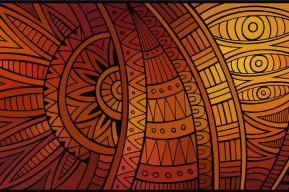Event
High-level Panel on Leveraging Scientific Freedom to Foster Africa’s STI Agenda

Registration
To attend please
send an invitation request to rssr@unesco.org
register here
The world needs more science to counter major challenges such as climate change, health crises, digital transformations, and others. But not just any science. Science must go beyond productivity and growth and be driven by respect for human dignity. This science can only flourish in an open and safe science ecosystem. This is why Scientific freedom is crucial.
Data shows that scientists, especially women researchers, face significant threats globally, including physical and online harassment. In response, UNESCO has launched a Program and Call to Action to advance the freedom and safety of scientists.
As part of this effort, UNESCO organizes the high-level panel on Leveraging scientific freedom to foster Africa’s STI agenda at the Sixth African Science, Technology and Innovation Forum.
During this event, UNESCO will also launch the report "African Perspectives on Scientific Freedom". This report offers invaluable insights from six African countries: the Republic of the Congo, Ghana, Namibia, Sierra Leone, Tanzania, and Zimbabwe. It highlights challenges facing Africa's scientific communities, such as low research output and gender disparities, while also offering recommendations for inclusive, nondiscriminatory, and policy-driven solutions.
Join us for the event and this crucial dialogue on scientific freedom in Africa and beyond.
Programme
The event will be opened by a video message of Ms Gabriela Ramos, UNESCO’s Assistant Director-General for Social and Human Sciences, and remarks by Dr Amina Jama, Senior Research Advisor at the Embassy of Sweden in Ethiopia.
Prof. Daya Reddy will then present the key findings of the "African Perspectives on Scientific Freedom" report, followed by a roundtable discussion moderated by Ms Ângela Melo, Director of Research Ethics and Inclusion at UNESCO, with the following panelists:
Speakers:
Hon. Prof. Delphine Edith Emmanuel, Minister of Higher Education, Scientific Research and Technological Innovation, Republic of the Congo.
Hon. Ophelia Mensah Hayford, Minister of Environment, Science, Technology and Innovation, Ghana
Hon. Dr Haja Ramatulai Wurie, Minister of Technical and Higher Education, Sierra Leone
Prof. Daya Reddy, Vice-Chancellor a.i., University of Cape Town, South Africa
Dr Amina Jama, Senior Research Advisor at the Embassy of Sweden in Ethiopia.
Lukovi Seke, Quantitative Economist & R&D and Innovation Indicators Specialist, AUDA-NEPAD (TBC)
Daniel Bekele, Chief Commissioner, Ethiopian Human Rights Commission (TBC)





